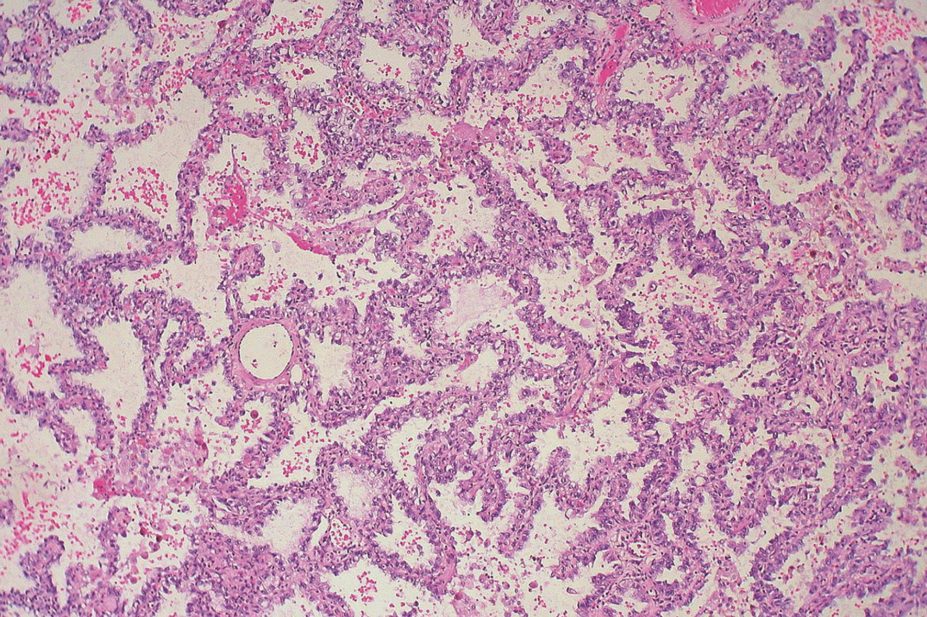
Ed Uthman / Wikimedia Commons
Bisphosphonates are used to treat osteoporosis and other disorders of bone resorption. A new generation of lipophilic bisphosphonates has been designed to target cancer; one such agent, BPH-1222, a zoledronic acid analogue, has demonstrated efficacy against lung adenocarcinoma.
According to research in Science Translational Medicine (2014;6:263ra161)[1]
, BPH-1222 was significantly more effective than the most potent standard bisphosphonate in killing tumour cells with KRAS mutations both in vitro and in a mouse model. A combination of BPH-1222 and rapamycin (sirolimus) was more effective than either agent alone in facilitating autophagy and inhibiting tumour growth.
“Using lipophilic bisphosphonates in combination with rapamycin may provide an effective strategy for targeting lung adenocarcinomas harbouring KRAS mutations,” write Yifeng Xia, from Salk Institute for Biological Studies, La Jolla, California, and colleagues.


